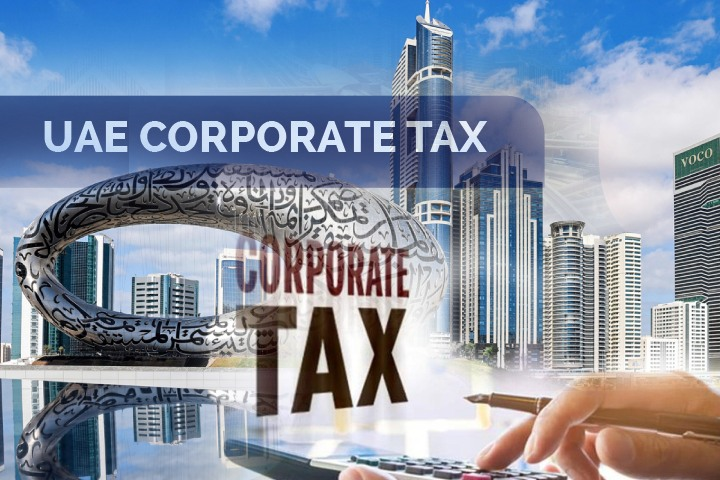
Imagine owning a luxurious apartment on Dubai Islands, the Arabian Gulf shimmering outside, knowing your investment thrives in a market where corporate tax impacts are minimal for savvy investors. In 2025, Dubai Islands a 17-square-kilometer waterfront masterpiece by Nakheel with five interconnected isles (Central, Shore, Golf, Marina, and Elite) is a global magnet for luxury real estate.
Offering 100% freehold ownership, a dirham pegged to the U.S. dollar for currency stability, and residential purchases free of 5% VAT, Dubai Islands draw 58% of buyers from countries like the UK, India, and Russia, fueling 94,000 property transactions in the first half of 2025. With 4-6% rental yields and 8-12% price appreciation, these islands outshine London (2-4%) or New York (3-4%).
Properties over $545,000 qualify for a 10-year Golden Visa, while smaller units offer 2-year residency perks. While individual investors enjoy zero personal income tax, capital gains tax, and annual property taxes, the 9% corporate tax and new 2025 rules like the Domestic Minimum Top-up Tax (DMTT) and Qualifying Investment Fund (QIF) updates affect corporate owners. This guide explores these impacts, spotlighting projects like Haven Living, Beach Walk Residences, and Azura Residences, to help corporate and individual investors maximize returns.
Dubai Islands, accessible 15 minutes from Deira via water taxi or Sheikh Zayed Road, offer 50 kilometers of coastline, lush parks, and 80 resorts for 30,000 residents. With 2-3% vacancy rates versus 7-10% globally, demand is driven by 25 million tourists and a 5% population surge. Individual investors face no personal income tax, keeping 100% of rental income ($48,000-$120,000 annually on a $1.2 million-$2 million property), versus $26,400-$72,000 elsewhere.
Zero capital gains tax saves $60,000-$140,000 on a $300,000-$500,000 profit, and no annual property taxes save $12,000-$40,000 yearly, unlike New York (1-2%) or London (council tax up to 2%). Residential purchases avoid 5% VAT ($60,000-$100,000), but corporate owners face the 9% corporate tax unless exempt as a Qualified Free Zone Person (QFZP). Small business relief waives corporate tax for revenues under $816,000 until December 31, 2026. Corporate tax rules in 2025 refine this landscape, impacting portfolio managers but sparing individual investors.
The tax-friendly vibe feels like a financial oasis for island investors.
Introduced in 2023, the 9% corporate tax applies to businesses, including those managing Dubai Islands properties, unless exempt. Individual investors dodge this, keeping rental income and capital gains tax-free. A corporate entity leasing a $2 million apartment yielding $80,000-$120,000 faces a 9% tax ($7,200-$10,800), reducing net income to $72,800-$109,200.
QFZP status in free zones like Dubai Multi Commodities Centre (DMCC) eliminates this, saving $12,240-$30,600 on $122,400-$306,000 in income, with setup costs of $2,000-$5,000 and annual fees of $1,000-$3,000. Small businesses with revenues under $816,000 qualify for tax relief until 2026. Non-compliance risks fines up to $136,125, making legal advice crucial for corporate owners.
The corporate tax feels like a manageable hurdle with the right strategy.
Effective January 1, 2025, the DMTT imposes a 15% tax on multinational enterprises (MNEs) with global revenues over €750 million ($793 million), aligning with the OECD’s Two-Pillar Solution. This impacts corporate entities managing large Dubai Islands portfolios. A company leasing 10 properties with $1 million in rental income faces a 15% tax ($150,000), reducing net income to $850,000.
If selling properties for a $5 million profit, the DMTT takes $750,000, leaving $4.25 million. Individual investors and smaller entities with revenues below $816,000 are unaffected, preserving tax-free returns. QFZP status avoids DMTT, saving $30,600-$61,200 on $306,000-$612,000 in income. This rule targets large corporations, keeping Dubai Islands attractive for most investors.
The DMTT feels like a big-player tweak, sparing smaller investors.
Cabinet Decision No. 34 of 2025, effective Q2 2025, refines QIF and Real Estate Investment Trust (REIT) rules. QIFs, including those investing in Dubai Islands properties, remain exempt from corporate tax if real estate income is below 10% of total income and ownership is diversified. If a QIF earns $1 million, with $200,000 from real estate, 80% ($160,000) faces 9% tax ($14,400). Restructuring to meet QIF criteria costs $1,500-$4,000 but preserves exemptions. REITs managing properties like Azura Residences face similar scrutiny. Individual investors avoid these rules, enjoying tax-free gains, but corporate investors must ensure compliance to maximize returns.
QIF updates feel like a smart challenge for corporate portfolios.
The 5% VAT, in place since 2018, remains unchanged, but 2025 tightens compliance. Residential purchases, like a $1.2 million Haven Living apartment, are VAT-exempt, saving $60,000, unlike commercial properties. Off-plan purchases may incur 5% VAT on developer fees ($20,000-$80,000), recoverable via Federal Tax Authority (FTA) registration ($500-$1,000).
Corporate owners operating short-term rentals, leveraging 25 million tourists, must register for VAT if revenue exceeds $102,041, charging 5% on bookings but claiming credits on expenses like DTCM fees ($408-$816 annually). A $2 million property yielding $80,000-$120,000 incurs $4,000-$6,000 in VAT but allows $1,000-$3,000 in credits. Non-compliance risks fines up to $13,612, impacting corporate budgets.
VAT compliance feels approachable with proper planning for corporate owners.

Haven Living by Metac Properties, set for completion in Q4 2025, offers 1-3 bedroom apartments ($475,750-$1.2 million) with 4-6% rental yields and 8-12% price growth. These 800-1,800 square foot units feature sea views. For corporate owners, a $1.2 million apartment yielding $48,000-$72,000 faces a 9% tax ($4,320-$6,480) unless QFZP-exempt, reducing net income to $43,680-$65,520. Selling for $1.5 million yields a $300,000 tax-free profit for individuals, saving $60,000-$84,000.
No property taxes save $12,000-$24,000 yearly, and VAT exemption saves $60,000. Initial costs include a 4% DLD fee ($19,030-$48,000), 2% broker fee ($9,515-$24,000), and a 35/65 payment plan. Maintenance fees are $5,000-$10,000, with a 5% municipality fee ($2,400-$3,600). QFZP saves $12,240-$18,360. U.S. investors deduct depreciation ($21,818-$43,636), saving up to $17,455. Golden Visa eligibility applies for properties over $545,000.
The waterfront charm feels like a tax-smart corporate win.
Beach Walk Residences by Imtiaz Developments, set for handover in Q2 2026, offers 1-3 bedroom apartments ($598,095-$1.2 million) with 4-6% rental yields and 8-12% price growth. These 900-2,000 square foot units boast beachfront access. A corporate owner leasing a $1.2 million apartment yielding $48,000-$72,000 faces a 9% tax ($4,320-$6,480) unless QFZP-exempt. Selling for $1.5 million yields a $300,000 tax-free profit for individuals.
No property taxes save $12,000-$24,000 yearly, and VAT exemption saves $60,000. Initial costs include a 4% DLD fee ($23,924-$48,000), 2% broker fee ($11,962-$24,000), and a 60/40 payment plan. Maintenance fees are $6,000-$12,000, with a 5% municipality fee ($2,400-$3,600). QFZP saves $12,240-$18,360. U.S. investors deduct depreciation, saving up to $17,455. Golden Visa eligibility applies.
The beachfront vibe feels like a corporate-friendly, tax-smart retreat.
Azura Residences by Invest Group Overseas, set for completion in Q2 2026, offers 1-4 bedroom apartments ($680,625-$2 million) with 4-6% rental yields and 8-12% price growth. These 1,000-2,500 square foot units feature sea views. A corporate owner leasing a $2 million apartment yielding $80,000-$120,000 faces a 9% tax ($7,200-$10,800) unless QFZP-exempt.
Selling for $2.5 million yields a $500,000 tax-free profit for individuals, saving $100,000-$140,000. No property taxes save $20,000-$40,000 yearly, and VAT exemption saves $100,000. Initial costs include a 4% DLD fee ($27,225-$80,000), 2% broker fee ($13,613-$40,000), and a 60/40 payment plan. Maintenance fees are $6,000-$12,000, with a 5% municipality fee ($4,000-$6,000). QFZP saves $20,400-$30,600. U.S. investors deduct depreciation ($36,364-$72,727), saving up to $24,545. Golden Visa eligibility applies.
The urban waterfront feels like a modern, tax-smart haven.
Corporate investors can minimize tax impacts with these strategies. First, obtain QFZP status to avoid the 9% corporate tax and DMTT, saving $12,240-$61,200 annually. Second, structure QIFs to keep real estate income below 10% of total income, maintaining exemptions. Third, recover 5% VAT on off-plan purchases via FTA registration. Fourth, leverage small business relief for revenues under $816,000 until 2026. Fifth, hire tax professionals to avoid fines up to $136,125. Sixth, consider individual ownership for smaller portfolios to bypass corporate taxes entirely. Short-term rentals boost yields by 10-20%, offsetting tax costs.
These strategies feel like a roadmap to corporate success.
Individual investors face no corporate tax, keeping rental income and capital gains tax-free. Strategies include: First, hold properties individually to avoid all corporate taxes. Second, recover 5% VAT on off-plan purchases. Third, use double taxation treaties with 130+ countries to avoid foreign taxes like the UK’s 20-28% capital gains tax. Fourth, U.S. investors should deduct depreciation ($21,818-$72,727) and management fees ($2,400-$8,182), saving up to $24,545. Fifth, register short-term rentals with DTCM ($408-$816) to boost yields. Hire a property manager ($5,000-$12,000 annually) for compliance.
Individual ownership feels like a tax-free path to wealth.
Buying a $1.2 million property incurs a 4% DLD fee ($48,000), 2% broker fee ($24,000), and a 10% deposit ($120,000). Flexible payment plans (35/65 or 60/40) spread costs, with 35-60% paid during construction. Annual maintenance fees are $5,000-$12,000, with a 5% municipality fee ($2,400-$6,000). Off-plan purchases may incur 5% VAT ($20,000-$80,000), recoverable via FTA registration. Gift transfers to shareholders reduce DLD fees to 0.125% ($1,500), saving $46,500. Corporate owners face additional compliance costs ($1,500-$5,000 for QFZP or QIF setup).
The costs feel manageable for a tax-smart investment.
A projected oversupply of 41,000 units may slow price growth. Mitigate by choosing trusted developers like Nakheel or Imtiaz, verifying escrow compliance under the 2025 Oqood system, and targeting low-vacancy projects (2-3%). Ensure QFZP and VAT compliance to avoid fines. Short-term rentals boost yields, while long-term leases ensure stability. Proximity to Deira and cruise terminals drives value. Regular market analysis keeps corporate and individual investors ahead.
The 9% corporate tax and 2025 rules like DMTT and QIF updates impact large corporate portfolios but spare individual investors, who enjoy no ownership taxes, capital gains tax, or rental income tax. Haven Living, Beach Walk Residences, and Azura Residences offer 4-6% yields, 8-12% price growth, and tax savings of $12,000-$140,000 annually. With Golden Visa perks and a vibrant market, Dubai Islands remain a tax-smart, high-return haven for corporate and individual investors seeking luxury and profitability.
read more: Luxury Island Villas in Dubai With No Ownership Taxes
